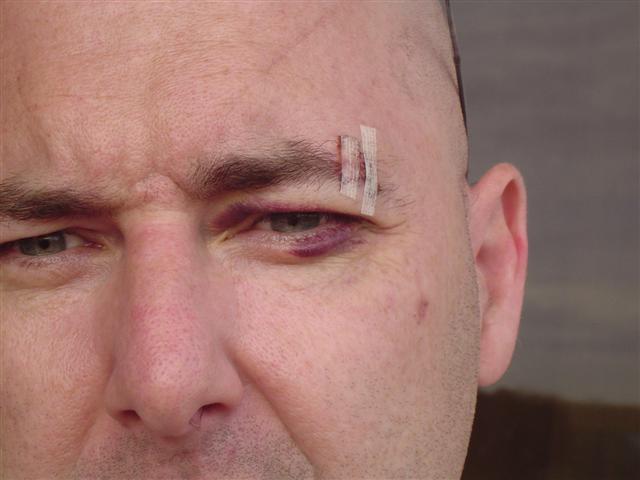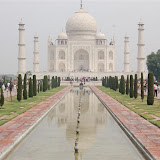i came back to asia this week after spending two weeks in the US. i was there to cover a peer who was on holidays with his family. he had spent six years planning a vacation, and two weeks before his leaving the company thought having coverage in the major time zone might help limit the disruption. this translated to another round of long-haul flights, followed by unexpected jet-lag on either side of the world.
the past few years have taught me to enjoy the travel that is an element of working in this location. it has also taught me to building increasing distance from those around me; i have swung through the pendulum of transition from craving time with friends to selfishly protecting my personal time so it could be spent on isolation. gone are the days of wondering who to spend time with, i have settled into a pattern of routine solitude, building extended periods where having nothing to do, and doing it alone, have given me a sense of safety. for the first time i sense the true meaning of cocooning, and the comfort it brings.
this may explain why i enjoy the long haul experience. thirty to forty hours of social and communication isolation which are viewed by the outside world as purposeful and necessary. having the explanation of nearly two days of literal disconnection to help explain why you are 1400+ emails behind in your reading and response is helpful to the always connected manager. being able to sit and read for the pure pleasure of idea synthesis while ignoring the turbulence outside, tightening the lap belt, snuggling under a blanket and relaxing in your angled travel pod with it's walls to protect you from the neighboring travelers, is worth the effort of dealing with security lanes.
the downside of traveling the world is the possibility of bringing unbalanced reading materials. my book selections over the past few weeks have been following a questionable trend. there has been a theme which was not immediately apparent, but which has boiled over into a series of questions i am now working through during the quiet moments of jet-lag awakened early morning. rather than going into depth i will summarize the central themes of the books i have read over the past few weeks:
(in chronological order)
- all actions we take are based on the evolutionary need to genetically succeed, even when that translates behaviors you would not discuss with grandma.
- modern complexity is positive and productive, even if it appears to be the exact opposite.
- cultural norms and fear are the root of most systematic failures; participants know better, but they don't stop them.
- being lucky is a key element to being successful; timing is everything.
- people can be motivated to act in ways they don't want to after subtle stimulation.
- being unhappy is a key element to being successful.
- americans expect happiness and are willing to feel nothing rather than feel unhappy
- societies fail because they want to; it makes them feel better about themselves.
- birth is death begun
going out and finding this progression of themes was not intentional. it just kind of happened, two of them were selected to be read on back to back flights because they did seem to be related, but they were purchased on different continents and just happened to be happily sitting next to each other during the packing exercise. most of these subjects have been read in semi-complete isolation, darkened airplanes buffeted by winds or crowded cafes infused with music. in either case, they were read in the comfort of solitude.
so here is the thought the books have brought: time is precious, mistakes happen, life matters.
are you going to tell me these are three thoughts? i see it as one, much like the books they are different but connected. as related as the anthropology, psychiatry, neuro-chemistry, organizational risk-management, sociology and literature that these books sprang from. "cake" has a song that reminds us that "sad songs and waltzes aren't selling this year", the authors of these books have not listened to this song. or maybe they have, although the books first appear to be depressing, with the consistent discussion of mistakes made and later reevaluated, they have left me with a comfortable feeling of ease.
one thought i have had is that people all over the world are screwed up. many of them are way more screwed up than i am. they take drugs to feel better, ones which numb them to the ability to feel pleasure as well as pain. other people retreat into mystery and myth in order to make sense of their lives which are too complex for them to analyze in any other way. many people, when confronted with an issue allow fear, uncertainty and doubt to control their actions and later rationalize their mistakes away.
travel has taught me to accept many things about myself that i didn't know before. i pack at the last minute, need to remember to check that i have my passport before i drive to the airport,i need to leave room in my luggage for the things i will buy when i am there and to accept that sleep patterns before/during/after travel will be disrupted. it has also also taught me to do email while driving in a snow storm, to remember to send take off and landing messages and how to deal with sudden change that i have no control over. being unable to shift my car into gear during a work crisis or missing a flight that was already four hours later than i thought would be would have been major disruptions a few years ago. these are now chances to have a coffee and make the important call without the emotional risk of sliding off the road.
feeling in control, even when fully aware there is no way to truly control the situation, is the best anti-depressant i can think of. numbing the highs and lows is like flattening out the roller-coaster; what is the fun in that? but then again, driving on slippery roads while doing email, finding flights without turbulence sad if not boring and being happy to travel 12,000 miles just to cover days with concurrent crisis-es could be a different sign.
then again roller coaster was never my favorite ride, bummer-cars always were. they may not have the same thrill as the big rides, but their lines are usually shorter. although, the roller coaster can be done alone, the bummer-cars need someone else to be worth it. traveling the world, reading books, creating new ideas are all things which can done alone, but to experience my favorite ride in the park i need someone to stand in line with.
bumping into strangers is not nearly as much fun as bumping into someone you love.










